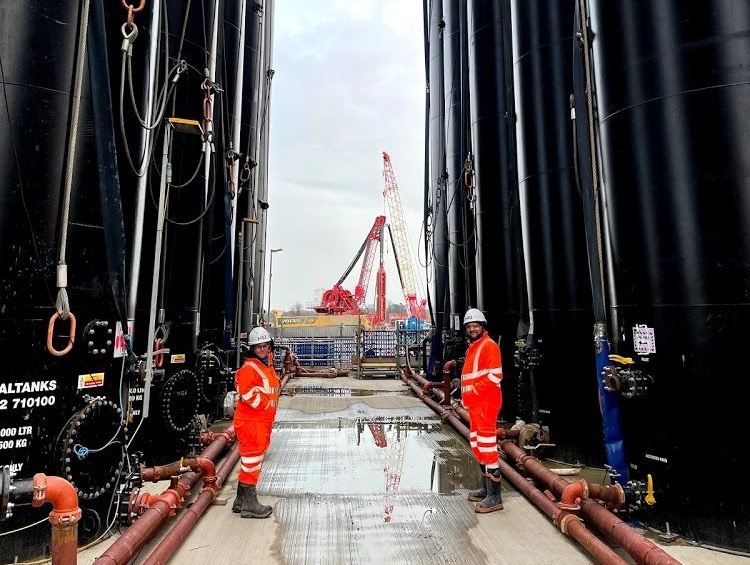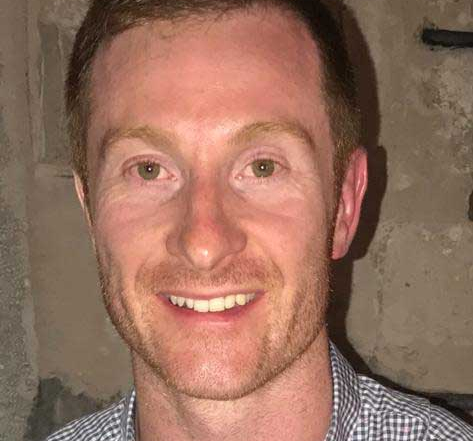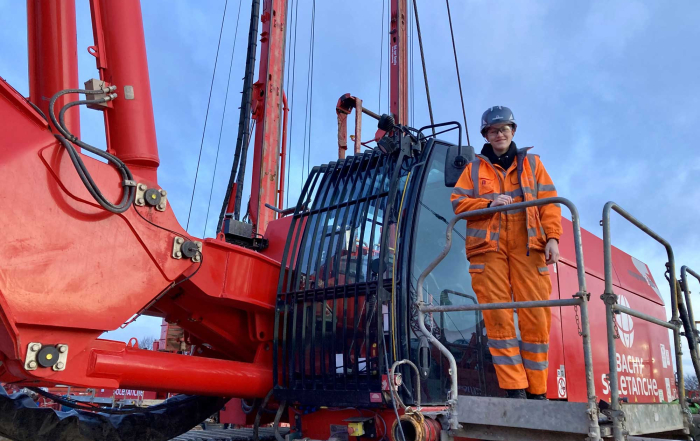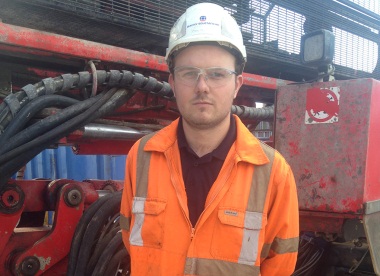Ruth Webster joined Bachy Soletanche as a temporary receptionist and has risen through the ranks of the company to become a Senior Contract Engineer. In this section, Ruth discusses her progression through the company and gives advice on how to follow suit.
How did you come to work at Bachy?
My route into the company has been slightly unorthodox. When I finished my A-levels I went to university to study teaching but I quickly realised it wasn’t for me. I felt university was something I was expected to do, as opposed to something I really wanted to do, and I wasn’t aware of any other options. As a result, I left after a couple of semesters with little idea of what I was going to do next.
There seems to be this myth that to be an engineer you need to excel at maths and science, but that isn’t really the case.
Conveniently, my mum worked at Bachy as a finance director, and she mentioned that there was a role coming up as a temporary receptionist. I applied for the role, got it, and started doing on and off holiday and maternity cover. After about eighteen months there was talk of a new Contract Engineering apprenticeship scheme being introduced. When the scheme was launched, I was invited for an interview and I was offered a role on site in Barrow where I combined site work with studying for a part time Higher National Certificate (HNC) in building work. This was back in 2007 and marked the first step on my career in engineering.

What advice would you give to someone that is looking to take up an apprenticeship scheme?
There seems to be this myth that to be an engineer you need to excel at maths and science, but that isn’t really the case. I think this probably comes from the fact that degrees at big universities, where you need a combination of maths and science at A-level, are heavily publicised whereas apprenticeship schemes are not.
I have been invited to speak to university students before as part of their civil engineering course, and I always tell them that they can learn as much as they can at university, but you really start to learn the ins and outs of the job when you are working on the site. Really, what this job is about is project management – managing people and managing a site – these are the fundamental skills you need. If you don’t have the ability to do that, you’re really going to struggle.
I have also always been eager to throw myself into new and exciting opportunities, whether that’s a new project to work on, skill to develop or working group to engage with.
Everything else can be taught or learnt on the job. The fact I didn’t study for a degree has never held me back, even on contracts where the company is required to submit our CVs to show our professional qualifications. I even get phone calls from people on sites all around the country asking me to ask for my advice, so I am confident that my knowledge is held in high regard!
What do you think has been key to your success?
The company support structure has always been fantastic, and I always tell that to new and prospective employees. There is a bit of a tendency to throw people in the deep end, but from my experience that’s the best way to learn. When you’re put in a situation where you need to remember important things to move projects along, you get to grips with the job much faster. And, because there is always someone to consult for advice on a project or confide in if you are feeling overwhelmed, you never really feel out of your depth.
I will always be grateful for the fact I was given lots of responsibility and the opportunity to manage projects at a very young age. One such project was fitting a large diaphragm wall for Crossrail in London. I was only 24 at the time and this seemed like a really dauting task, but my Managing Director was really supportive – he knew I had the skills and that gave me a new-found confidence. Looking back on it, that was one of the best experiences of my career so far!
When you’re put in a situation where you need to remember important things to move projects along, you get to grips with the job much faster.
I have also always been eager to throw myself into new and exciting opportunities, whether that’s a new project to work on, skill to develop or working group to engage with. In addition to these points, Bachy Soletanche is simply a good place to work if you want to progress through the career ladder quickly – which a lot of graduates and apprentices do. If you put the time and effort in, and the company thinks you are good enough, the sky really is the limit.


